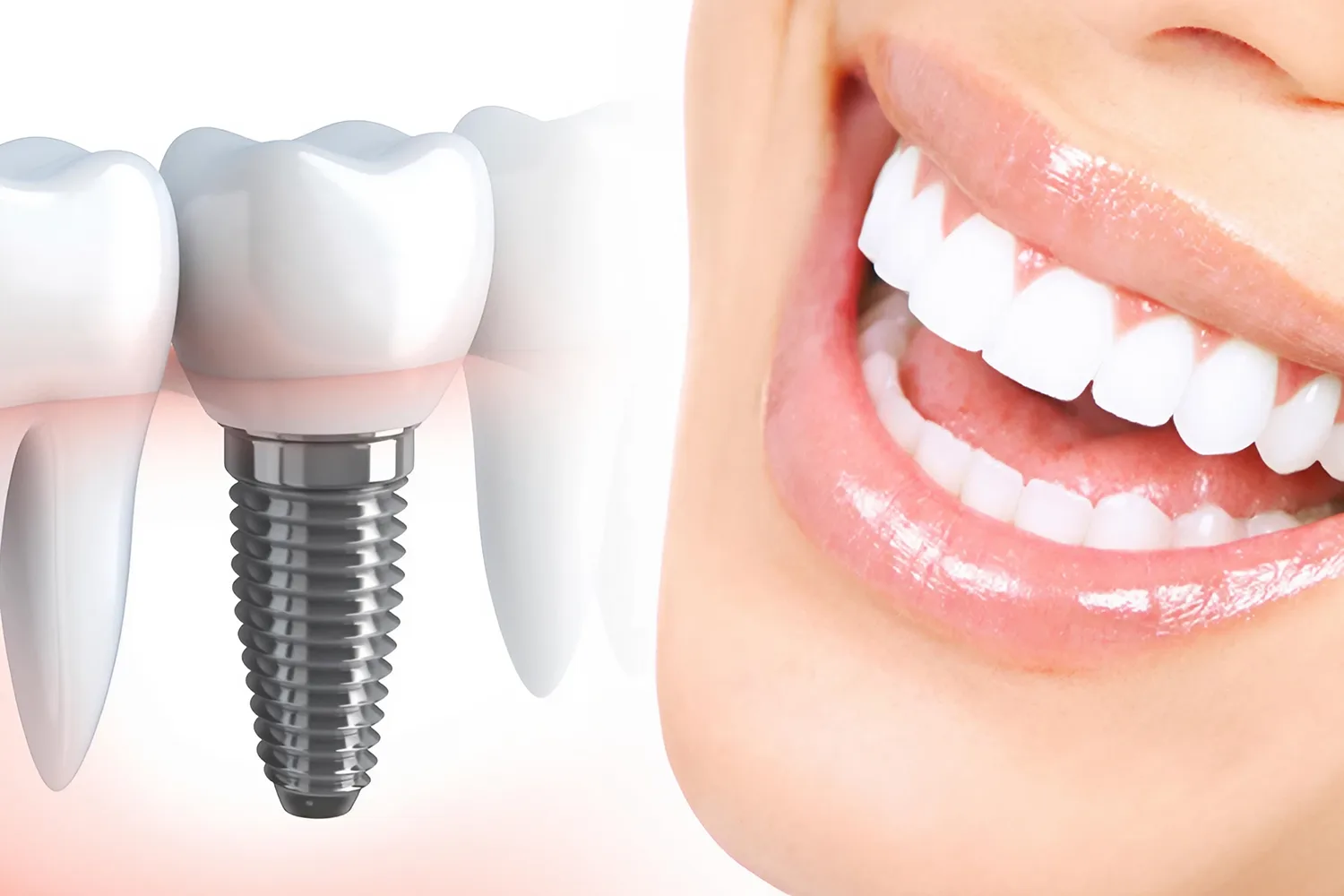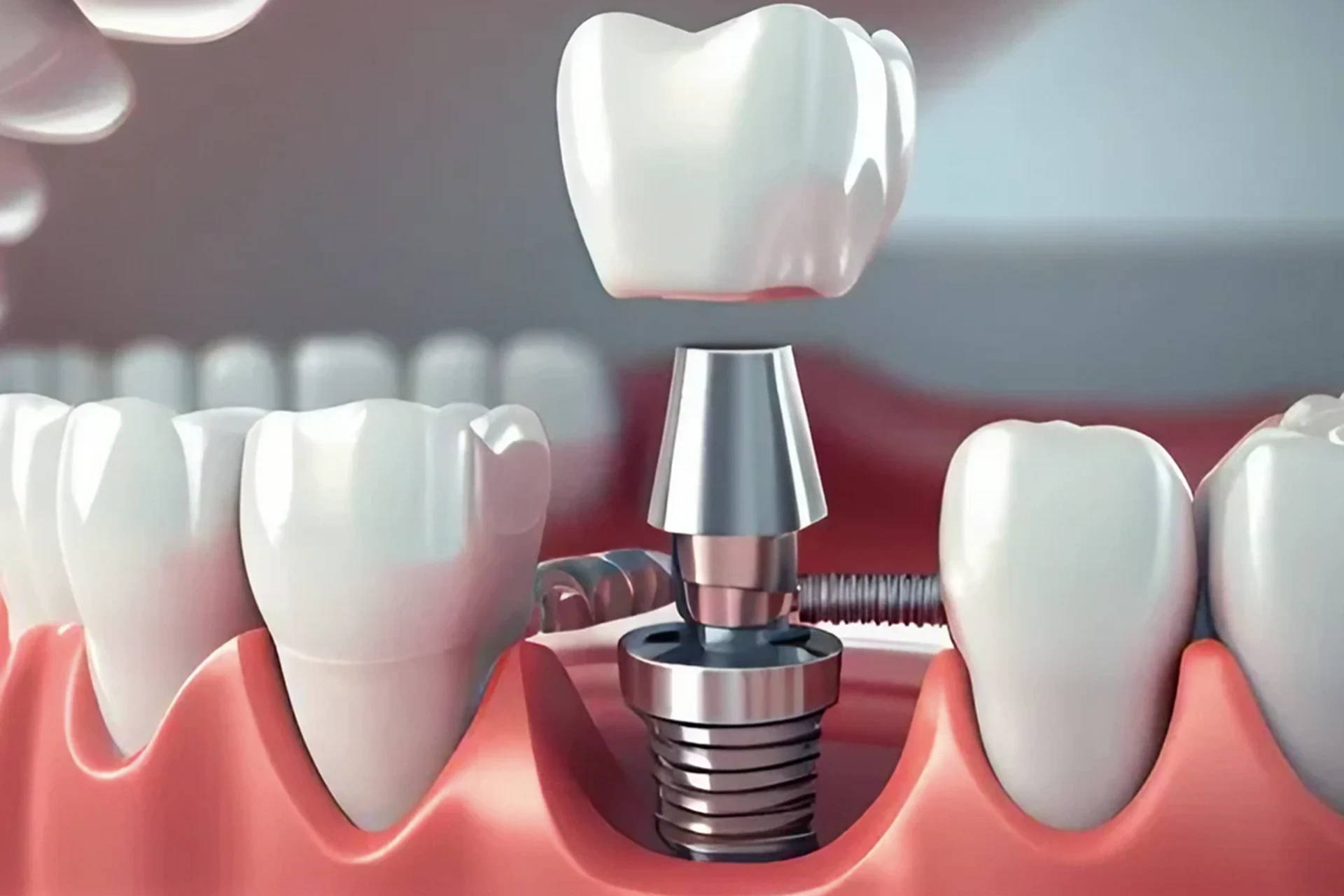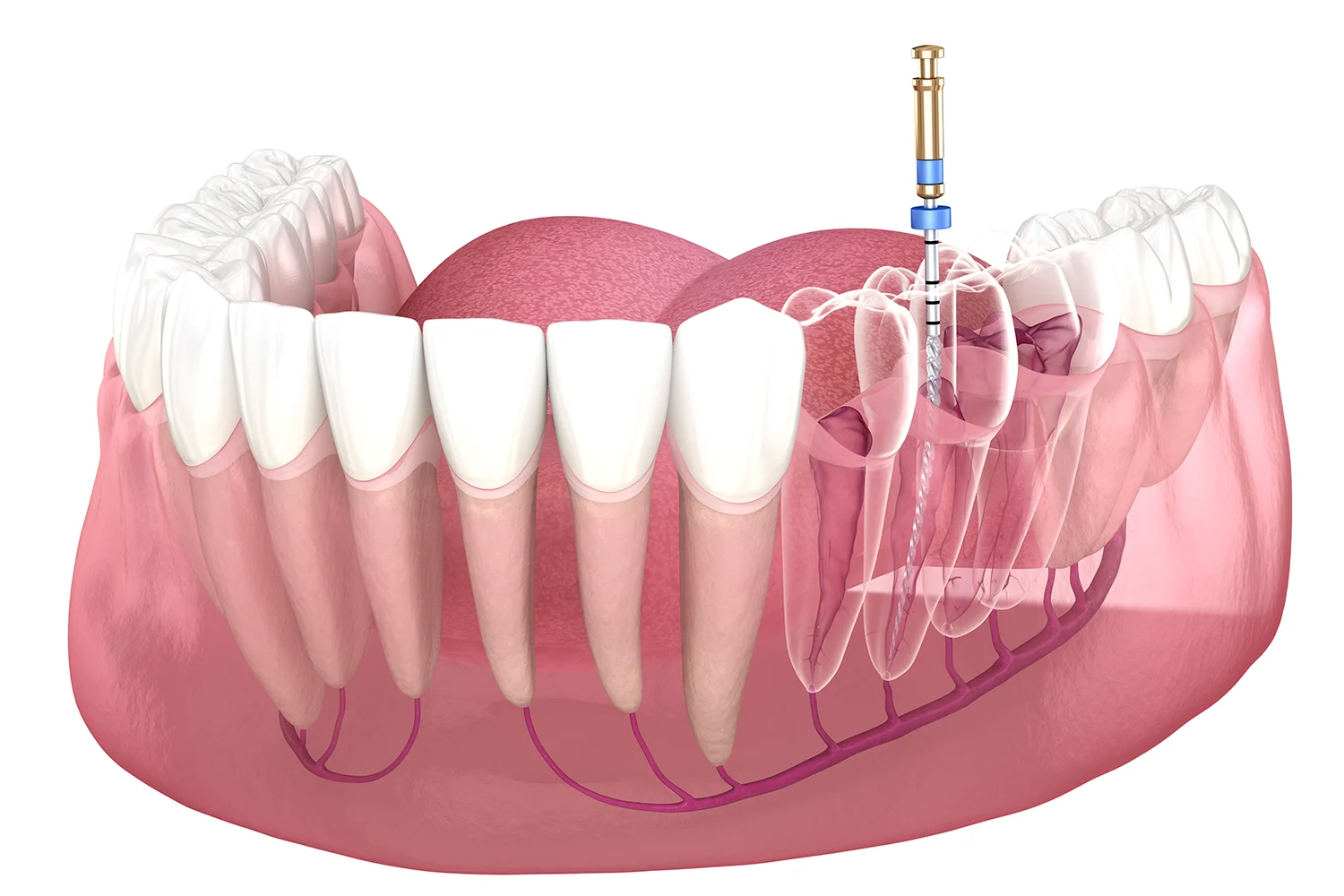Dental implants represent a groundbreaking solution for individuals aiming to replace missing teeth and enhance their oral health. This detailed guide is crafted specifically for a European audience, providing extensive information on dental implants. By delving into the specifics of dental implants, understanding their myriad benefits, and knowing what to expect during and post-procedure, potential patients can make informed decisions regarding their dental health requirements.
What Are Dental Implants?
Dental implants are diminutive titanium posts surgically embedded into the jawbone beneath your gums. These posts act as stable foundations for artificial teeth, allowing your dentist to affix replacement teeth onto them. Designed to integrate with your jawbone, dental implants offer secure and enduring support for artificial teeth, ensuring that dentures and bridges mounted to implants feel akin to your natural teeth, thereby eliminating concerns about them slipping or shifting while eating or speaking.
The Unmatched Benefits of Dental Implants
Choosing dental implants offers a myriad of benefits that significantly impact not just oral health, but overall well-being and quality of life. Here’s a deeper dive into the remarkable advantages of selecting dental implants as your tooth replacement solution:
Preserve Natural Tooth Structure
One of the most significant benefits of dental implants lies in their ability to preserve natural tooth structure. Unlike tooth-supported bridges, which require adjacent teeth to be filed down to support the bridge, dental implants are directly anchored into the jawbone. This process leaves more of your natural teeth untouched, thereby maintaining the integrity of your oral health over the long term. By avoiding alterations to surrounding teeth, dental implants contribute to the preservation of your dental landscape, safeguarding your oral ecosystem.
Longevity and Dependability
Dental implants are synonymous with durability and reliability. When maintained with proper oral hygiene and regular dental check-ups, they can serve as a lifelong solution to tooth loss. The titanium material used in implants is biocompatible, allowing it to fuse with the bone naturally through a process known as osseointegration. This fusion provides a stable and sturdy foundation for replacement teeth, mirroring the strength and function of natural tooth roots. The enduring nature of dental implants means that they can withstand the rigors of daily use, offering a dependable solution that feels as natural as it performs.
Aesthetic and Psychological Benefits
The aesthetic and psychological benefits of dental implants are profound. Designed to mimic the look and feel of natural teeth, implants restore the visual appeal of your smile with results that are often indistinguishable from your original teeth. This seamless integration does more than just enhance physical appearance; it significantly boosts self-esteem and confidence. Knowing your smile looks natural and attractive can have a positive effect on social interactions and personal comfort. Moreover, the permanence of dental implants, resulting from their integration with the jawbone, eliminates the fear of slipping or moving that often accompanies dentures. This stability ensures that implants not only improve how you look but also positively affect how you feel about yourself, both inside and out.
The decision to opt for dental implants carries with it a host of advantages that extend well beyond mere aesthetics. From preserving natural tooth structure and offering unparalleled durability to enhancing your appearance and boosting self-esteem, dental implants stand out as a superior choice for tooth replacement. Their ability to improve quality of life while providing a functional, lasting solution makes them an investment worth considering for anyone looking to address tooth loss.
The Dental Implant Procedure: Step-by-Step
The process for getting dental implants involves several key steps:
- Initial Consultation: This first step involves your dentist examining your mouth, taking x-rays, and discussing your medical history to ascertain if dental implants are suitable for you.
- Implant Placement: The implant is surgically inserted into the jawbone under local anesthesia. Some discomfort may be experienced, but it is generally less painful than anticipated.
- Healing and Osseointegration: Following implant placement, the healing phase begins. This period, which can span several weeks to a few months, allows the implant to integrate with the jawbone through osseointegration.
- Abutment and Crown Placement: After the implant has bonded with the jawbone, an abutment is attached to securely hold the new tooth, followed by the attachment of the crown.
Ensuring the Success of Dental Implants
For the success of dental implants, it is essential to:
- Maintain excellent oral hygiene through regular brushing and flossing.
- Have regular dental check-ups and cleanings.
- Avoid consuming hard and sticky foods for some time post-surgery to protect the implants.
Selecting the Right Dental Professional
The choice of a qualified dental professional is critical. It is advisable to select a dentist or oral surgeon with a wealth of experience in implant dentistry, especially considering the plethora of well-trained professionals in Europe specializing in this field.
The Path to a Better Smile
Dental implants offer a lasting solution to tooth loss, significantly enhancing your quality of life. Though the process may appear daunting, the final outcome—a beautiful, functional smile—is immensely rewarding. Consulting with a dental professional is the first step to determine if dental implants are the correct choice for you. This guide aims to equip you with a deeper comprehension of dental implants, empowering you to make informed decisions about your oral health. Whether you’re exploring the possibility of dental implants or are poised to proceed, the journey to an improved smile and oral health is attainable.












